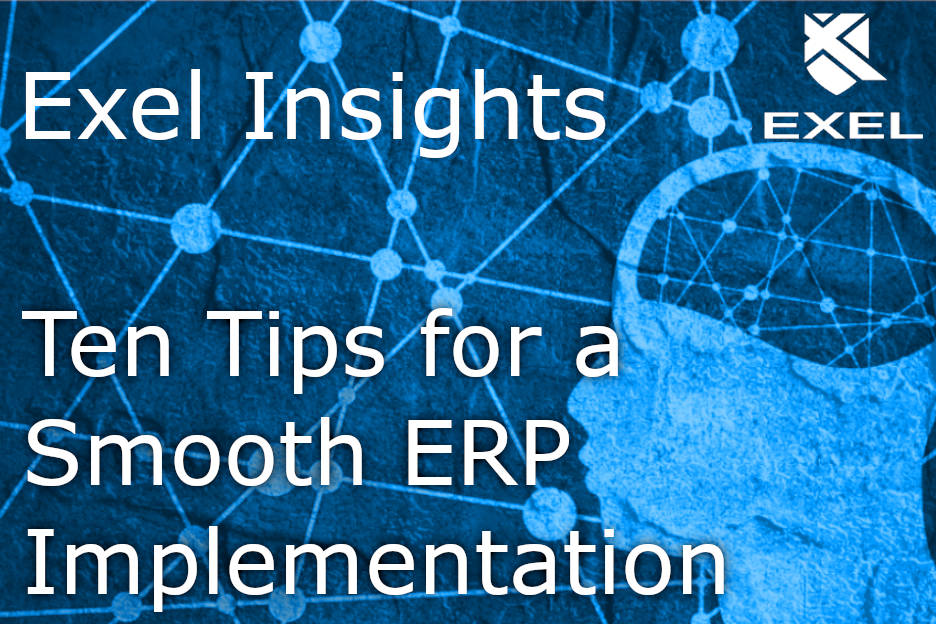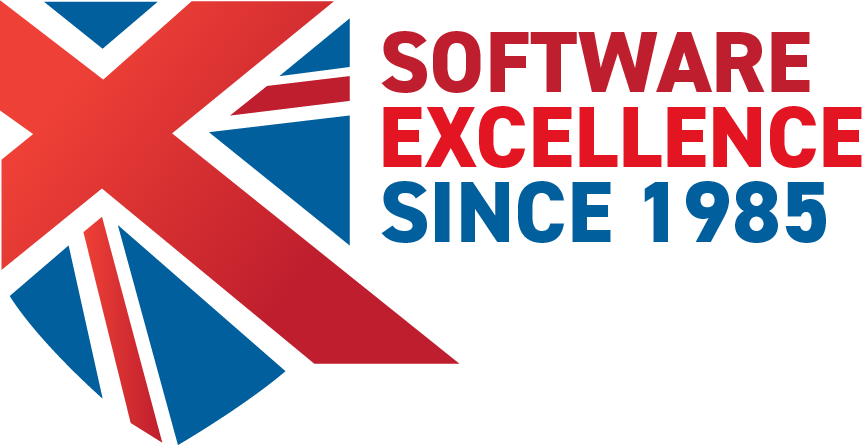 Exel Computer Systems plc, a UK software author based in Nottingham, is currently in its 36th year of developing and implementing ERP solutions for the manufacturing and field service sectors. Over that time Exel has implemented its systems across hundreds of sites and amassed a wealth of knowledge along the way.
Exel Computer Systems plc, a UK software author based in Nottingham, is currently in its 36th year of developing and implementing ERP solutions for the manufacturing and field service sectors. Over that time Exel has implemented its systems across hundreds of sites and amassed a wealth of knowledge along the way.
The combined experience of the 18-member strong implementation team at Exel amounts to well over 150 years, with several members of the team each having served the company and its clients for over 20 years.
As such, Exel feels it is well placed to advise on key points to consider when selecting and implementing a new ERP system.
Choosing a partner instead of a supplier. You are no doubt aware that the selection of an ERP solution provider is not one that is taken lightly, you might take 6 to 12 months scoping your requirements and selecting vendors that can meet those requirements. You will, however, find that selecting on functionality alone becomes a difficult task, as the majority of solutions are able to provide most of the required functionality.
Choosing an author over a reseller removes the middleman and allows you direct access to the teams that create the solution. You will hopefully be choosing a system that you will be using for a long period of time, so choose a company that you feel comfortable with, a company you can work with as a partner, not just a supplier.
Futureproof your business by choosing a flexible system. The system you implement today may not be the system your business requires in 5 or 10 years. For this reason, you should implement a system that has the flexibility to change as the company changes – all without altering the ‘core’ of the system itself. A certain amount of in-house customisation is beneficial, should you have the in-house skills. If not, then partnering with the author of the software rather than a reseller allows you access to those with the greatest knowledge and expertise.
Appoint an internal Project Manager to work alongside your ERP provider’s Project Manager, this ensures that someone in your business is fully up to speed with progress, can manage expectations and can provide regular updates to management. Be sure to make arrangements to give your Project Manager time away from their day to day job to do this.
Ensure you are happy with the accuracy of your data prior to migration. Essentially, an ERP system can be considered to be fuelled by data. Accurate output can only be achieved by accurate input. A well implemented system will ensure future inputs are as accurate as can be, but if data migration from your previous system included errors, those will be replicated in the new.
Clearly define project scope/project phasing, as well as your goals and objectives. Whilst factors may arise that alter the scope or phasing of the project, it’s always beneficial to know what the expectations were and what the end goal should be.
Create a project team with members from each of your business areas. They should have a good understanding of current business processes and be in a position to make decisions regarding the improvement of processes that affect their area of the business.
Plan your consultancy days so that you gain the most from them. Ensure the relevant people are available and that they are prepared for the subject to be discussed.
Use the workshop phase to review all your procedures and ensure you can work them through in your chosen solution. Remember, this is your chance to change any outdated or inefficient processes and determine the appropriate solution for your business.
Document your procedures as you work through them. It can be easy to forget how you have decided to work. This also gives other departments the opportunity to match procedures for when department interaction occurs.
Think about the reporting required. Review your current reporting, check which reports are used and whether the recipients find the information relevant and useful. Give some thought as to the information collected by the new solution, you will likely find you are able to report on a lot more than previously expected – gaining important insights into the profitability/efficiencies of your business processes.
By following a structured, planned approach to your ERP implementation you can avoid many of the common pitfalls and mistakes and look forward to a project that is implemented on time and within budget. A well implemented ERP system, either as an on-premises or hosted solution, will improve productivity, lead to company-wide efficiencies, enhance customer service and ultimately transform your business.
Orbital Fabrications comment on their experience implementing EFACS E/8:
Implementation began almost immediately. Orbital acquired a server, installed the EFACS E/8 software and set up a three-person implementation team. In addition, a newly-appointed Director recommended nominating a community of ‘super-users’ to spearhead training and deployment within individual departments of the company.
“The implementation has been really good for us, even before the ‘go live’ point, it’s made us look at all our internal processes, and redesign them around best practice, while also taking inspiration from EFACS’ core functionality to shape and improve them. We knew, right from the start, that we’d have to do this, but hadn’t really appreciated how powerful the redesign would be.”
Go live, he adds, is scheduled for the forthcoming company financial year-end, although the system itself would be ready well before that point. Read the full Case Study for Orbital Fabrications here

